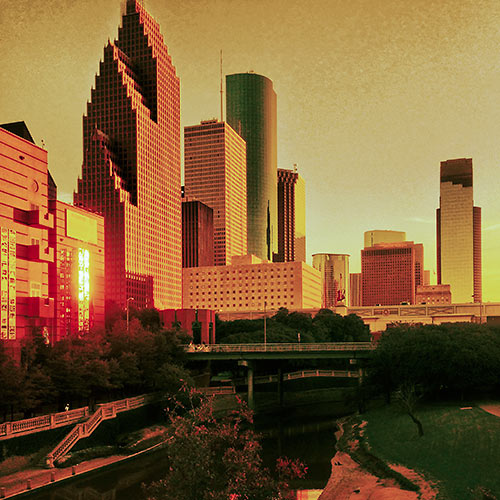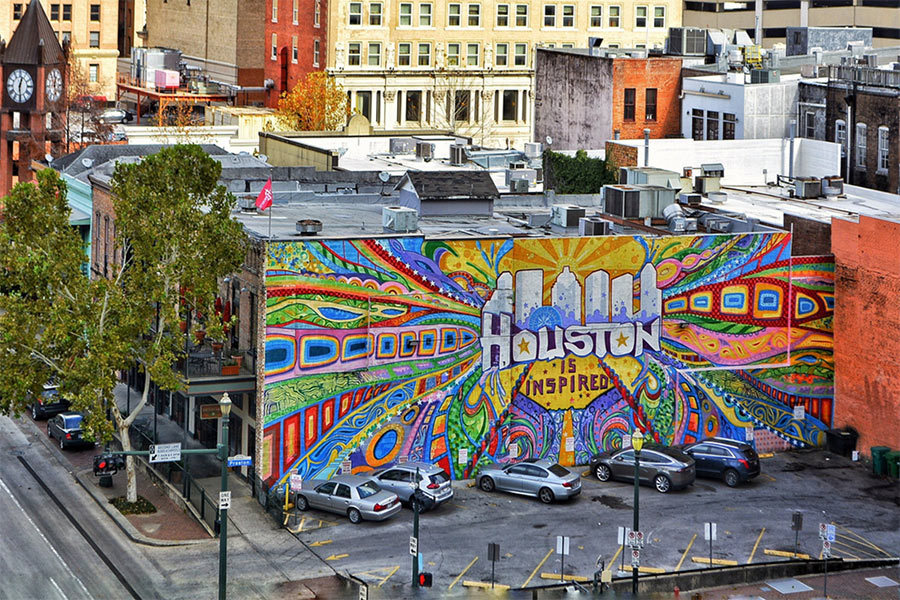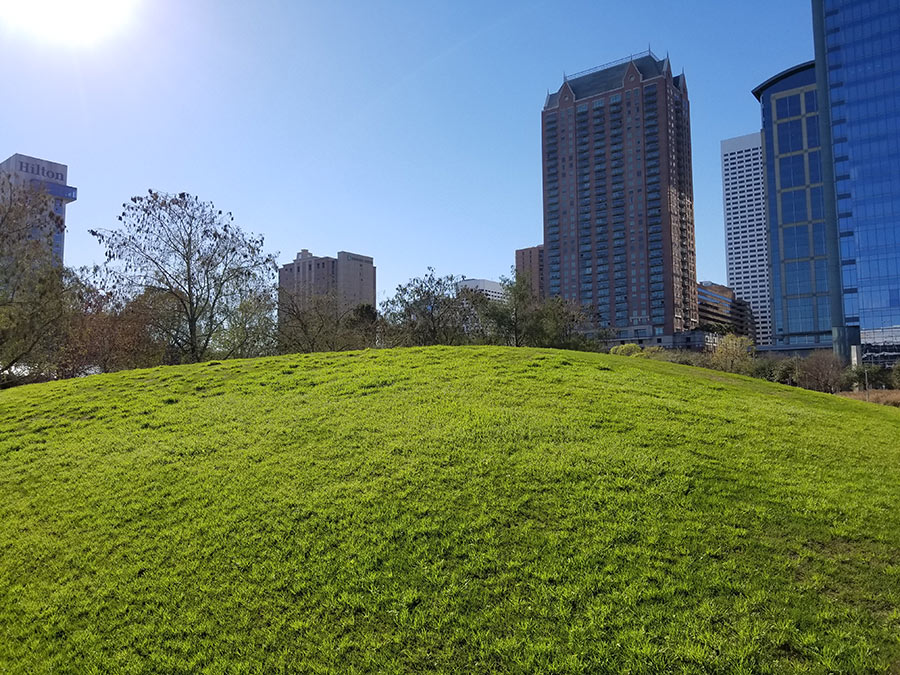
- Kite Realty Group Trust Buys Venice-in-a-Parking-Lot Portofino Shopping Center in Shenandoah [Realty News Report]
- Geico Claims Center Will Be First Building in Mason Creek Corporate Park Near Mason Rd. and I-10 [Prime Property; more info]
- Houston Condo and Townhome Sales Up 25 Percent Over Last Year, Finds Report [Prime Property]
- Through Wednesday, Parts Buyers Picking Up Their Pieces of the Astrodome [abc13]
- Mr. Larkin Pop-Up Shop Bringing Scandinavian Style to West University This Month [Houstonia Magazine]
- New Jim’s Super To Be Built at 610 and Scott May Get Help from City ‘Food Deserts’ Program [Houston Chronicle]
- Nearly $2.5M Private Grant Would Help Restore Ike-Damaged Washington Park [AP]
- The Homes in This Sunday’s Southampton Holiday Home Tour [Culturemap]
- Houston Competing with Midland, other Cities for Next Generation of Manned Spaceflight with Proposed Ellington Field Spaceport [Houstonia Magazine; previously on Swamplot]
- Gerald Hines Opens Up About the Galleria’s Early Days, Including Acquiring the Land, the Indoor Ice-Skating Rink, High-End Accents [Houstonia Magazine]
Photo of Sesquicentennial Park: Larry Zerante
Headlines





The City has put out almost 10 mil in 380 agreements for Costco, Kroger and Walmart (none of which actually needed the money) but is just now getting around to putting up money to actually address food deserts. It is one thing to have a food desert problem. That is not uncommon in major metros. But it is another thing to be throwing around tax deals in affluent areas while doing nothing for food deserts.
When I spoke with Katy EDC’s LaCour this morning, he declined to comment on the details of the incentive package offered to Geico for occupying the Mason Creek space. I also noticed that the governor’s office issued a press release for the Geico expansion. I wonder what perks were thrown in for Buffet’s insurance giant? I suspect there’s a little more to the story than what’s being told…
http://aaronlayman.com/2013/12/geico-opening-new-katy-office-at-21420-merchants-way/
Food desert? More like a knowledge and wisdom desert. That shows how pathetically dependent we humans have become as a society. People used to use land to grow real food, now people depend on non-food that comes in boxes and packages. The affluent area are even more desert-like as there’s less available land to grow food.
Neighborhoods could become self-sufficient with gardens producing fresh food year round, especially in climates like ours.
So the city props up the idea that food comes in a box, which props up the medical center indirectly I guess. Win-win!
@Dana-X, I wouldn’t eat produce grown on an urban lot if it was the last morsel of food on the planet. You obviously do not know how plants absorb chemicals in it’s immediate environment. What you’re actually eating when you eat a piece of green from your yard is all the particles from car tires passing, partially degraded plastics, particles from construction materials accumulated over decades including lead, asbestos, paints, sealants, all the pesticides used by your neighbors, even remnants of prescription medications.
Produce grown on a farm hundreds of miles from a major city is not perfect, but it’s infinitely safer.
The Geico Project is not in the City Limits of Katy its in Harris County, so I’m not sure what perks the Katy EDC could offer them.
If Ellington becomes a spaceport I wonder if its conceivable we could then see Russia from our backyard.
Food desert? Ha! Real food deserts occur only in actual deserts with no cities around (with the possible exception of inner city Detroit.). I’ve encountered them in places like La Barge, Wyoming or eastern Montana, but not in big cities. Corner stores in cities sell milk, eggs, cheese, bread, and cold cuts. Clutch City Convenience Store at Leeland/Dowling even sells fruit. How hard can it be to drive (or bum a ride or ride a bus) a couple times a month to go to a grocery store? For those of us who didn’t own a car in college, most of us still managed to get decent groceries.
The problem is people in some areas, for whatever reason, buy junk food instead of fresh food, and THAT low demand is what limits healthy options. A few years back, the Kroger at Polk and Cullen was redone/reorganized, especially the produce section. Within a few months, most of the produce on the shelves there was plentiful (i.e., not bought) but moldy because not enough people would buy vegetables. Same trucks, same brands of salad, and same initial freshness when put on the shelf, but people in this area were more interested in buying Jalapeno chips and Jarritos Pineapple Soda than fresh leafy salads.
Food desert? SMH. Get on a bus and take it to the nearest super market. Get a ride from a friend. Or ride a bike. Or walk. Enough whining already. It’s pathetic.
Commonsense, raised beds in a backyard are pretty safe, I believe. When you compare the tiny risks of that compared to dropping bizarre “foods” and drinks down the input hole called the mouth, which most people do, well….
I get the sneaking suspicion majority of commenters do not live in the designated “food desert”…just a hunch…
Isn’t it funny, that the crappiest food in any given grocery store is what qualifies for WIC, but non of the fresh food, or quality foods. @Commonsense, while I understand your feelings on urban farming, why would you naysay something that is positive for humans? Regardless of where your food comes from, it’s tainted, thanks nuclear testing(amongst other things)..we should encourage our neighbors to experience where their food comes from and the satisfaction of growing their own meal…so I guess my real question is…why all the negativity?
What a joke: easy for you to say. It is a luxury to be able to buy your food daily so you can buy an amount that is manageable with one or two hands. I used to take an elderly friend shopping once a week and she always thought it was an imposition–which it wasn’t–so there is pride involved in asking for help (this whole pick yourself up by your bootstraps crap is so ingrained people are reluctant to ask for help or accept it). Cycling to the store to pick up your groceries–well, you can check out plenty of threads on Swamplot about the pitfalls of cycling in Houston minus grocery bags to hinder you, not to mention the drivers who are so put out to avoid cyclists on the road.
I suspect that those who so strongly suggest walking, biking, or busing to the grocery store haven’t used any of those transit modes in ages for any reason (by “walking,” I mean as a way to get from Point A to Point B, not oozing from the valet stand to your restaurant table).
Gerald Hines is up there with Jessie Jones, George and Herman Brown, Hugh Cullen, and Dominique De Menil when it comes to iconic Houstonians, just an amazing man.